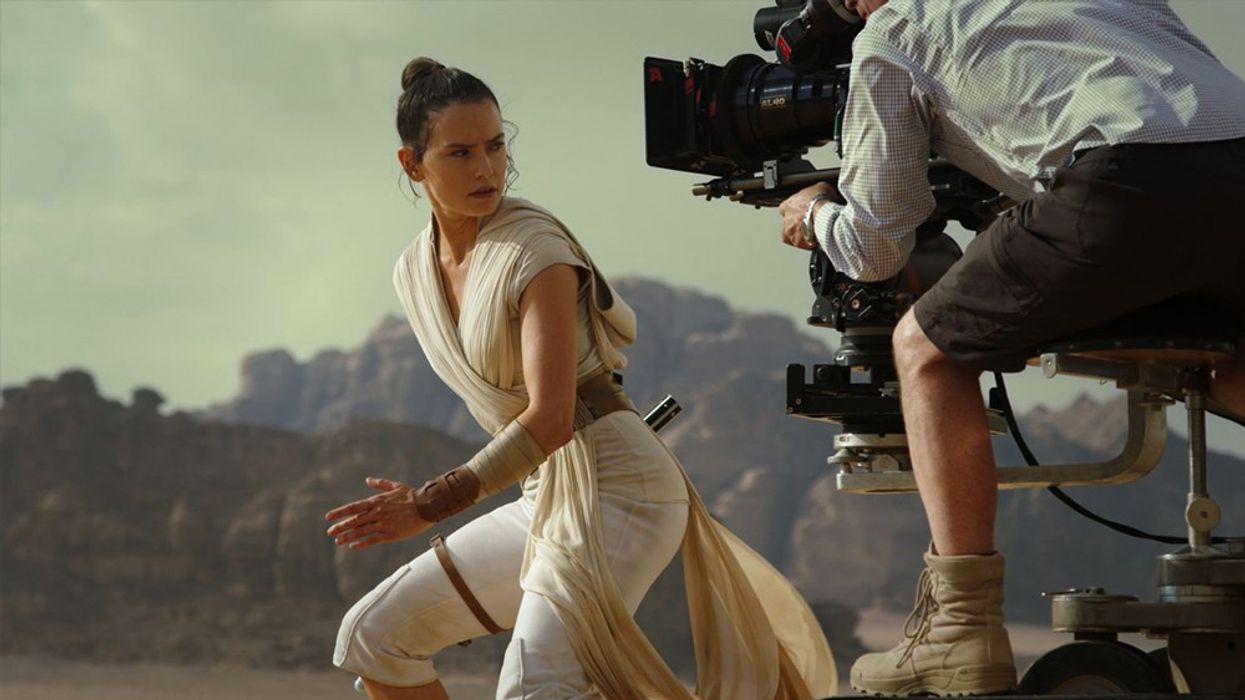Jump Into Hyperspace With These Tips From Star Wars Filmmakers
Creativity has no bounds – not even the Outer Rim.

One of the most kick-ass aspects about the filmmaking community is that creators openly share their process. You can literally ask them, "hey, how did you do that?" and they will gladly tell you.
The filmmakers lucky enough to work on the Star Wars franchise are no different. Below are some stellar tips and useful advice to incorporate into your own creative process.
George Lucas
“Whenever there’s a new tool, everybody goes crazy and they forget that there’s a story and that’s the point. You’re telling a story using tools, you’re not using tools to tell a story.” - source
Peter Suschitzky, cinematographer
"The most important thing is the writing of the film because everything is hung on the skeleton of the script and after that, comes the quality of the director and his or her ability to cast it well and the camera. As the cameraman, I’m going to choose the camera that I’m going to use with care and I love the lenses, I find that also a very important choice. But I have to admit, if the script is good and the director is good and imaginative, you can shoot a film with a pre-war camera." - source
Sean Barton, editor
"In post-production, it’s not terribly useful to work long hours. I find that if I work for 12 hours one day, I’ll have to come in the next day and re-cut my work because my levels of concentration drop and your work isn’t as good. It’s important to get out and have a social life with family and friends because it affects the quality of your work if you become too isolated." - source
Trisha Biggar, costume designer
“Everything for every planet and culture was being created anew. We used references and drew on a multitude of influences from all over the world, from every culture, country, civilization, and period, mixing them up to shape new fashions. By reinterpreting ideas and drawing on history the audience would – albeit subliminally – recognize and identify with the myriad of Star Wars styles." - source
J.J. Abrams
"What's important to me is that the characters are at the center emotionally and you know where you are, and you're tracking the characters that are taking you through those spectacular moments. And that to me is the most important thing. That balance of the intimacy with the spectacle and the sort of hyper-reality." - source
Dan Mindel, cinematographer
"Try to keep it as low tech as possible. The amount I learned working on commercials of how to light dog food or Coca-Cola has taught me more than most everything I've done... I'm not afraid to experiment and try stuff out, and I think that's what happens when you learn your craft and you're actually comfortable with it. You can then start experimenting."
Ben Burtt, sound designer
Supervising sound editor Matthew Wood on Burtt:
"He’s [Burtt] not afraid to get weird. He uses such strange sounds in ways that you might not ever think would work, but they do. Something’s going to stand out in the track, strangely, and you’re not going to know why, but it’s going to leave a mark." - source
Denis Muren, visual effects supervisor
"Jim Danforth taught me the value of critical thinking, especially about your own work, and how to see your work as the audience will see it. And during The Empire Strikes Back, George Lucas showed me a helicopter shot and asked if I could add a creature running on the ground, which at the time seemed impossible because of the six-axis camera motion. He said, ‘Give it some thought,’ and within 15 minutes I had a solution. That taught me that a right answer might be one thought away." - source
Bradford Young, cinematographer
On lighting, “ Don't question your instincts. Do what feels right, and you can come up with the logic for it.” - source
Have any tips or film-making advice to share with the No Film School community? Let us know in the comments below.
Up next
Dig deeper into our vast history of Star Wars filmmaking content. From pdfs of the scripts to BTS content to the tech used on The Mandalorian. We've got it all.












